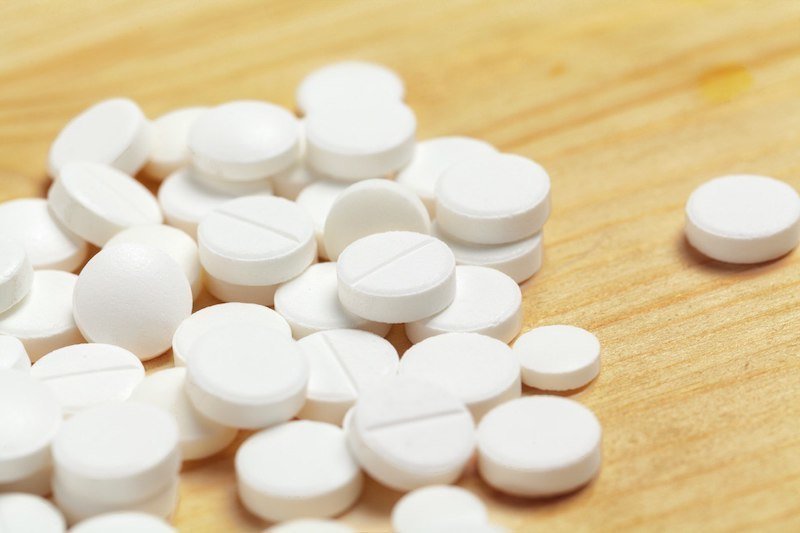WHICH DRUGS INTERACT WITH WARFARIN ( COUMADIN)?
RELATIONSHIP WITH MEDICATIONS AND WARFARIN… When you start a new drug while using warfarin ( Coumadin ) , you must inform your doctor.
- Do not use aspirin unless prescribed by your doctor. If aspirin has been prescribed by a doctor, you must state that you are using warfarin. In addition, frequently used drugs for pain such as cataflam, dolorex, kalidren, diclomec, difenac, dichloron, miadren, voltaren, advil, artril, brufen, dolgit, dolorin, ibu-600, nurofen, profen, syafen, suprafen, upren affect the INR value. Avoid the use of these drugs. It is acceptable to use drugs containing paracetamol or codeine when pain medication is required. The best recommended option is the use of paracetamol. Because it causes less gastrointestinal irritation and is one of the analgesics that does not affect platelet aggregation. However, the daily dose should not be more than 2 g, since the INR value may increase in those who use more than 2 g of paracetamol per day. Also, it is not recommended to use more than 4 g per day due to hepatotoxicity. .
- Using warfarin with sildenafil may increase the risk of bleeding. You may need to have your INR level checked more frequently and have a dose adjustment made.
- While taking Warfarin, be sure to tell your doctor before starting any Cold and Flu medicine. You may need to have further INR checks and be alert for any signs or symptoms of bleeding.
- In some studies in recent years, it is thought that warfarin interacts with some anti diabetic drugs and triggers hypoglycemia. .
- Since retinol and retinoid-containing drugs used in the treatment of acne will cause peeling of the skin, be sure to tell your doctor that you are using warfarin before starting these drug treatments. Since warfarin will increase the bleeding tendency, skin irritations may occur.
- In some studies, it has been observed that the use of certain cholesterol pills in warfarin users causes a small increase in INR. However, this increase is not clinically significant. You can use it with the advice of a doctor.
- Among the anti epileptic drugs, phenytoin, carbamazepine and phenobarbital are potent inducers of the cytochrome P450 system and their interactions with warfarin have been known for years. These drugs can significantly increase the rate of metabolism of warfarin and reduce the effect of a preset dose. It is recommended to be used with caution under the supervision of a doctor.
- It has been determined that anti-thyroid drugs reduce the effect of warfarin. Patients using these drugs should check their INR levels more frequently.
 9. Birth control pills can reduce the effectiveness of warfarin. Therefore, talk to your doctor to determine the appropriate birth control method for you.
9. Birth control pills can reduce the effectiveness of warfarin. Therefore, talk to your doctor to determine the appropriate birth control method for you.
10. Some chemotherapy drugs can affect Inr values; INR and bleeding signs/symptoms should be closely monitored and your warfarin dose adjusted accordingly, especially during initiation and discontinuation of chemotherapy. Some chemotherapy drugs have a greater effect on Inr values. You should inform your doctor that you are using warfmadin.
12. Oral and injectable cortisols, including prednisone, prednisolone, cortisone and hydrocortisone, can increase the INR value. Therefore, care should be taken in terms of bleeding symptoms while using cortisone.
13. Long-term use of orlistat may reduce the absorption of fat-soluble vitamins, including vitamin K, resulting in lower doses of warfarin being required. This may be due to switching to a lower-fat diet in which the amount of vitamin K is reduced or an effect on vitamin K absorption. Extreme caution should be exercised when these two drugs are used together.
14. In the studies carried out; It has been determined that taking proton pump inhibitors in patients using warfarin reduces gastrointestinal system bleeding. Proton pump inhibitors also increase the INR level. However, this effect can be minimized with the use of controlled warfarin and proton pump inhibitors are recommended in patients using warfarin. This becomes even more important in patients taking antiplatelet drugs.
15. Antibiotics such as Penicillin G, Clindamycin, which are less likely to affect the INR level, and 1st and 4th generation cephalosporins can be preferred in patients using warfarin. However, since antibiotics will be selected by your doctor according to their fields of action, use a different antibiotic if prescribed. and contact your doctor.
When you start a new drug while using warfarin (Coumadin), you should definitely inform your doctor.
Paylaşmak



Richard Muldoone
Feb 28, 2017 - 08:07 pmThe example about the mattress sizing page you mentioned in the last WBF can be a perfect example of new keywords and content, and broadening the funnel as well. I can only imagine the sale numbers if that was the site of a mattress selling company.
replyMike Dooley
Feb 28, 2017 - 08:22 pmThe example about the mattress sizing page you mentioned in the last WBF can be a perfect example of new keywords and content, and broadening the funnel as well. I can only imagine the sale numbers if that was the site of a mattress selling company.
reply